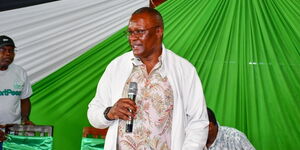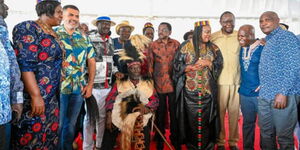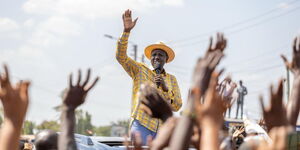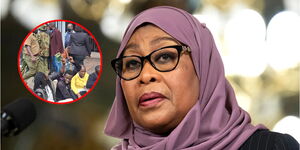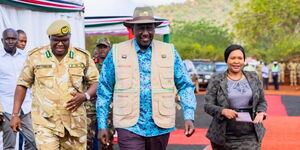President William Ruto is under pressure from financial experts and economists to ditch external borrowing to revive the economy in the 2023 financial year.
According to the Institute of Public Finance (IPF) report dated Monday, January 23, shifting global monetary policies leaves Ruto's administration in a tight spot with the increasing interest rates on debt.
During the launch of the Macro-Fiscal Analytic Snapshot 2022/23 report, James Muraguri, the Chief Executive Officer of IPF, warned that Ruto's over-reliance on debts would leave his administration with limited buffers.
"The last two years saw the government set revenue and fiscal deficit targets that were overly ambitious. With limited buffers against external shocks, the government is finding itself in a tight spot as it tries to navigate the global tightening of the monetary policy and rising debt interest payments," Muraguri stated.
"With this in mind, we expect a change in policy direction focusing more on fiscal policy coordination to address surging price levels, cushion citizens facing hunger and starvation and the successful distribution of subsidised fertilizer during the upcoming long rains," he added.
To help him navigate, IPF advised Ruto to shift from donor reliance and develop a domestic resource mobilisation strategy to bridge the current budget gaps.
According to IPF, harmonisation of revenue measures, easing fiscal pressure through budgetary consolidation and support of the agricultural sector would help Ruto revive the economy.
Other options include reorganising the health budgets, setting debt distress measures, and reorganising county governments' performance.
"Our projections point to some pain for the local Mwananchi especially in the shorter term as the government continues to implement its macro-stability agenda," IPF indicated.
Muraguri further argued that lowering borrowing would create space for private sector credit and higher investment in health, agriculture and education sectors which are critical pillars for long-term economic growth.
IPF projected Kenya's economy to grow by 5 per cent. The slow economic recovery pace was attributed to a persistent rise in commodity prices, global events and a high risk of debt distress.
"Sustained poverty reduction and growth over the next few years is possible if the government makes good its intentions to support the manufacturing and export sectors," Oxford Policy Management (OPM) also advised.

